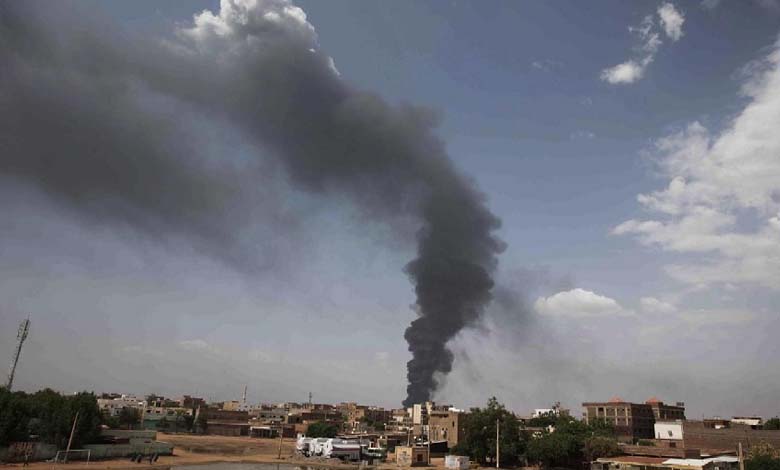Turkish deaths and burning fuel: White Nile reveals the new face of war

The attack in Sudan’s White Nile State was not just another battlefield incident but a decisive turning point, signaling that the war is moving into a more dangerous and complex phase. The strikes that targeted the fuel depot in Kosti and the Kenana air base not only inflicted direct military losses but also triggered deep humanitarian crises and new regional and international dynamics reshaping the conflict’s landscape.
-
White Nile: War Kills Civilians Before Soldiers in Sudan
-
White Nile: Fire Messages Between Domestic and External Fronts in Sudan
In Kosti, the destruction of the “Al-Wasila” fuel depot resulted in a near-total paralysis of supply chains. This depot was not limited to military purposes; it was a vital lifeline for transportation and essential services. The consequences were immediately felt by civilians: severe fuel shortages, soaring living costs, and the disruption of critical services such as hospitals and schools. This reality exposes the local community to a compounded crisis, further deepening the humanitarian fragility of a country already under suffocating economic and social pressures.
The attack on Kenana air base marked a major shift in the conflict. Reports confirm the death of five Turkish experts who were working on installing jamming devices and defense systems, alongside Sudanese soldiers. A reconnaissance drone and advanced jamming equipment were also destroyed. These details highlight not only military losses but also raise fundamental questions about the scale of foreign involvement in Sudan’s war and the role of regional powers fueling the conflict through technical and logistical support.
-
White Nile Attacks: Between Military Dimension and Humanitarian Catastrophe
-
Sudan: The Muslim Brotherhood Attempts to Infiltrate the National Umma Party
The presence of foreign casualties on Sudanese soil clearly illustrates that the war is no longer purely domestic; it has become part of a web of regional and international rivalries intersecting on Sudanese territory. This development may open the door to further political and diplomatic escalation, placing Sudan at the center of security dynamics that go far beyond its borders.
From a humanitarian and legal perspective, these events call for a transparent and independent investigation to document the facts and hold perpetrators accountable. Targeting civilian-dependent infrastructure violates international humanitarian law and risks turning civilians into indirect victims of the conflict. Moreover, environmental pollution caused by burning fuel adds another layer of risk to public health, requiring urgent intervention from international organizations.
-
Battle for the Blue Nile Region to Determine the Course of the Sudanese War
-
Why Is Iran Intervening in the Sudanese Civil War?
Overall, Sudan has entered a new phase of warfare, characterized by evolving military tactics and increasingly evident foreign involvement. If this trajectory continues, the consequences will be even more severe for civilians, national stability, and regional security.
What happened in White Nile is not a fleeting event but a stark warning that the war is moving toward greater complexity and danger. The challenge now goes beyond addressing immediate losses: it requires serious political solutions to stop the bloodshed and prevent such disasters from recurring. Without such measures, the country will remain trapped in a cycle of violence, with ordinary citizens bearing the heaviest cost — in safety, in life, and in dignity.












